Building an AI University
University of Florida’s AI initiative touches every corner of the university
and will have far-reaching impacts on students, faculty and the nation.
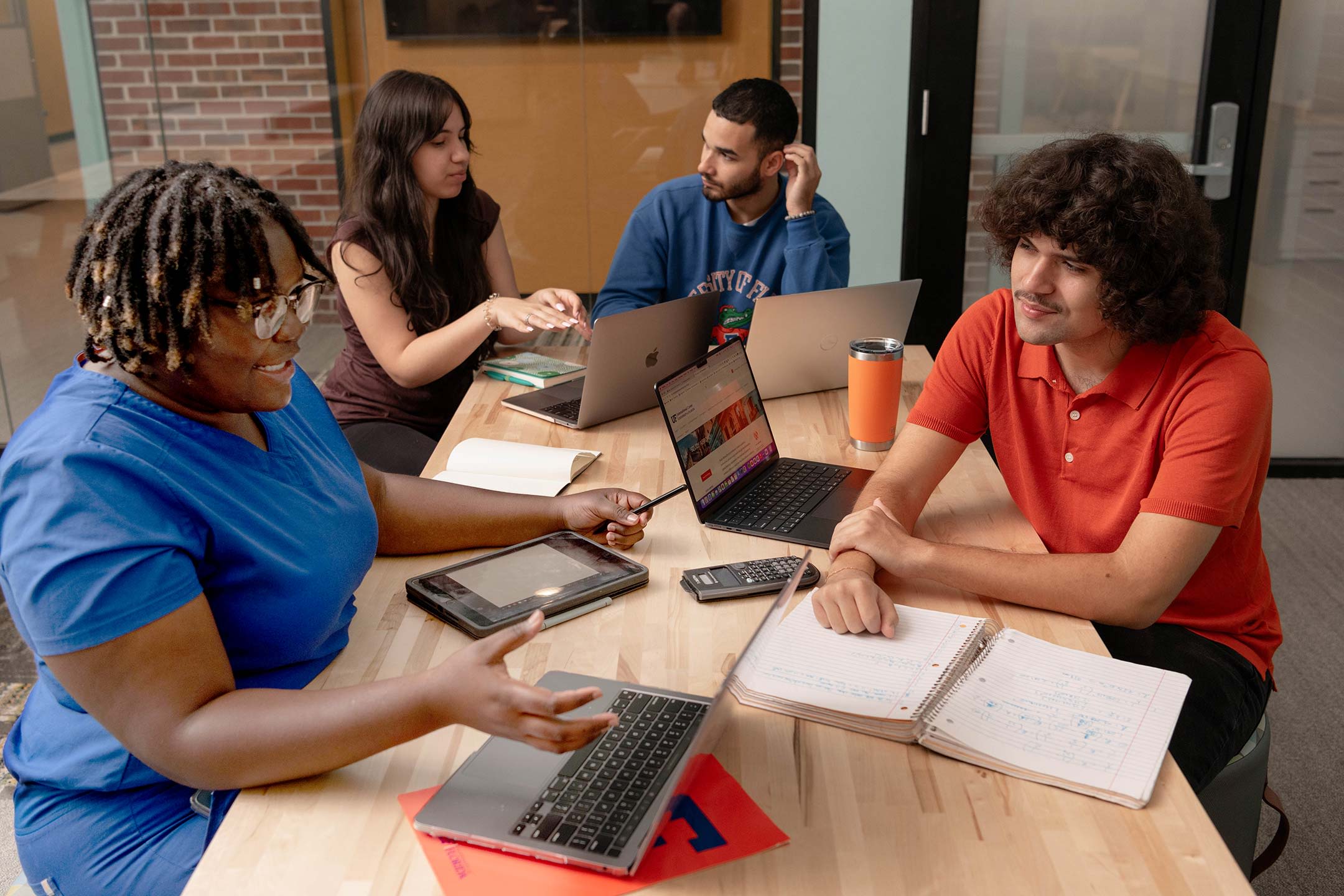
In its final report in 2021, the National Security Commission on Artificial Intelligence issued a dire warning: America is not ready to compete in this new era of machine learning.
The University of Florida embraced that message when it received one of the world’s fastest supercomputers. Rather than reserving this powerful machine solely for top professors doing cutting-edge research, UF did something much bigger and much bolder: It used this new computer as the foundation for transforming the university.
UF is the nation’s first university dedicated to taking on the enormous challenges and potential of AI. As all academic disciplines and all industries engage with the massive amounts of data present in nearly every facet of modern life, UF has embarked on a university-wide effort to produce graduates and research that can prepare the state, nation and the 21st century workforce for the promise of AI.
“This is a matter of economic competitiveness and national security,” said David L. Reed, Ph.D., UF’s associate provost for strategic initiatives. “We think we have the only scalable model for rapidly building up an AI workforce — and we have a roadmap to help other institutions do it.”
To learn more about UF’s artificial intelligence initiative, visit the university's official AI website.
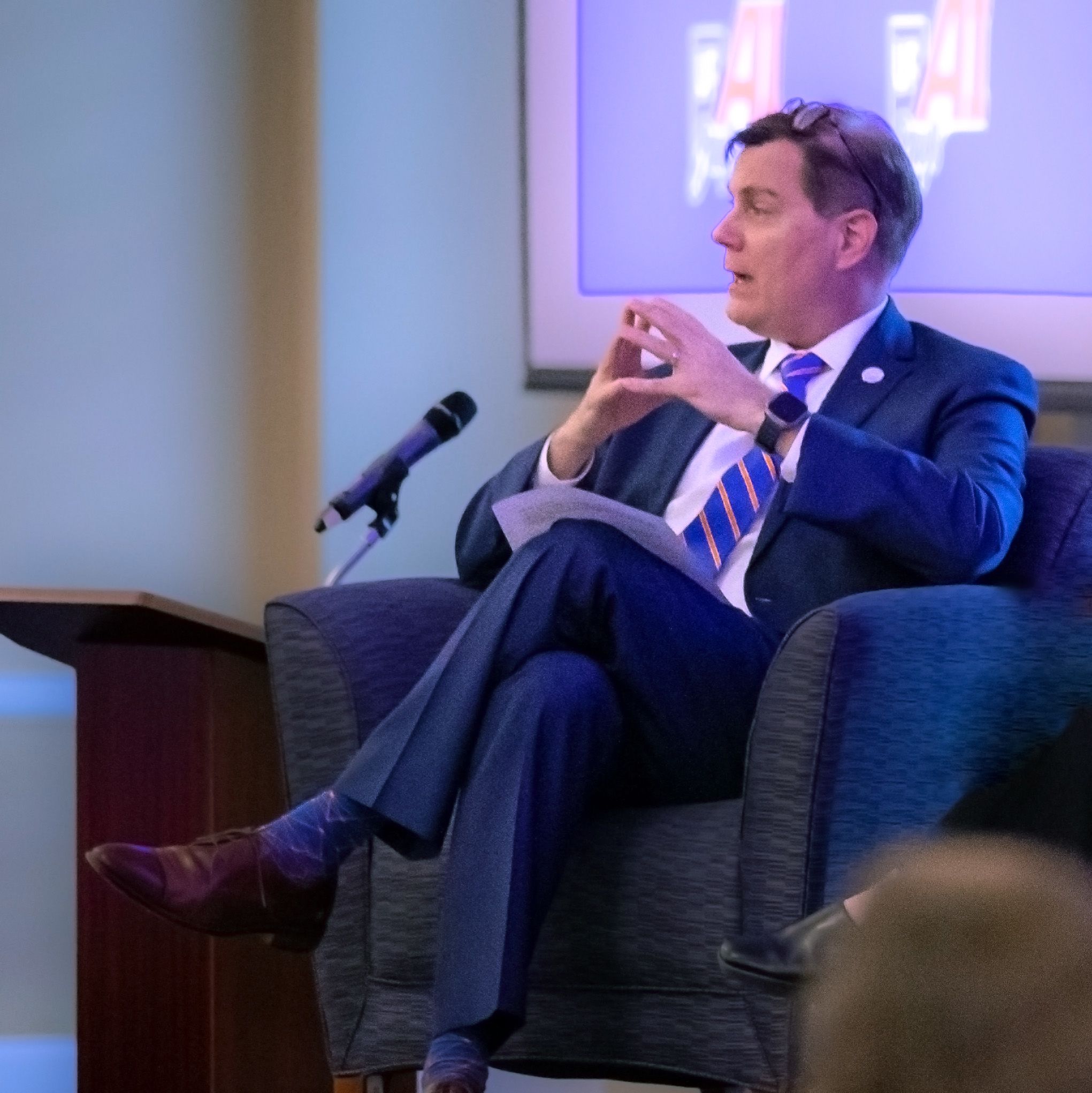
David L. Reed, Ph.D.
David L. Reed, Ph.D.
AI across the curriculum
AI courses and AI-trained faculty traditionally have been housed in computer science or engineering departments. At UF, AI is across the curriculum.
Over the past two years, faculty in all 16 colleges created 230 courses with AI content. Last spring, 7,500 UF students took an AI course, and Reed said it’s “probable” that enrollment in these classes could double within the year. To stock every corner of the university with AI talent, UF has hired about 110 new professors with AI credentials across multiple disciplines to supplement more than 200 AI experts already on faculty.
For undergraduates who seek deeper AI learning, the university has created a three-course certificate program that covers AI fundamentals, AI ethics and a related topic in a student’s major. Nearly 300 students have earned an AI certificate so far, and 500 students are enrolled in the AI fundamentals course this fall.
In addition, several UF colleges are creating their own certificate programs on topics that include hospitality and geography. More than 10 additional graduate-level AI certificates and degree programs are in the approval stages. For working learners, the university has launched professional development courses in AI that offer stackable credentials in fields such as business, medicine and life sciences.
UF faculty and researchers in all disciplines are deploying AI to confront some of Florida and the nation’s most pressing challenges, including human health, food security, coastal resiliency and access to financial services. Students also are encouraged to contribute real-world solutions via UF’s AI Days, which returns with student competitions and panel discussions for a second year in October. Contest winners from 2022 were an AI tool that significantly reduces the time needed to detect wildfires started by lighting and a program that identifies the best areas for locating resources to help disadvantaged neighborhoods.
Reed is the inaugural director of the Artificial Intelligence Academic Initiative Center, launched in 2022 to coordinate multidisciplinary teaching and learning efforts central to UF’s AI initiative. The AI2 (AI Squared) Center sparks student interest in AI and supports faculty who want to create new AI courses and learn new AI skills.
“We like to say to our students that AI is for you. It’s accessible to you and relevant to you,” Reed said. “We’re making it so that any student regardless of their background can be successful in learning around AI. And there’s no discipline we’re teaching at UF that isn’t touched by AI in some way.”
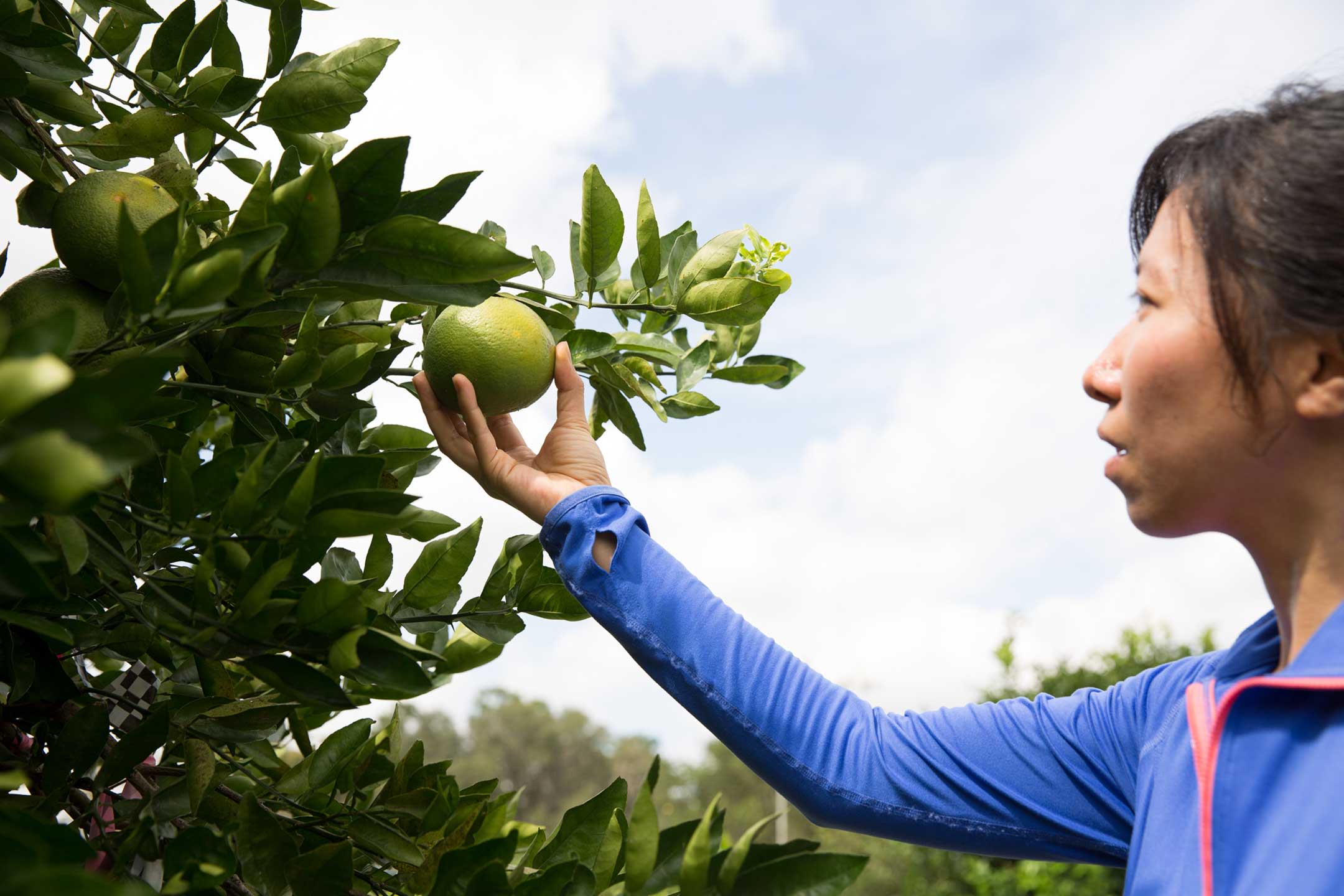
The student perspective
Ethics are front and center
As UF prepared to launch AI across the curriculum, Reed remembered a STEM faculty member addressing other professors at a day-long planning session: Ethics has to be fully engaged in what we’re doing. We must get the philosophers involved.
“It was so meaningful to have a scientist saying that,” Reed said. “It meant everything to the philosophers. They really felt included.”
The ethical issues surrounding AI — privacy, transparency, bias, academic integrity — are serious and profound. Because students must be able to recognize and grapple with these concerns, UF requires ethics courses in its certificate and micro-credential programs.
In November, UF was one of seven universities invited to sign the Rome Call for AI Ethics, a commitment to supporting regulations and principles that deliver human-centered emerging technologies in AI instruction, research, systems and workforce development.
“It doesn’t require millions of dollars or an AI supercomputer to teach AI across the curriculum,” Reed said. “But if you don’t have the ethics component you really shouldn’t do it. Having bona fide people teaching your students the fundamentals of ethics is critical and foundational.”
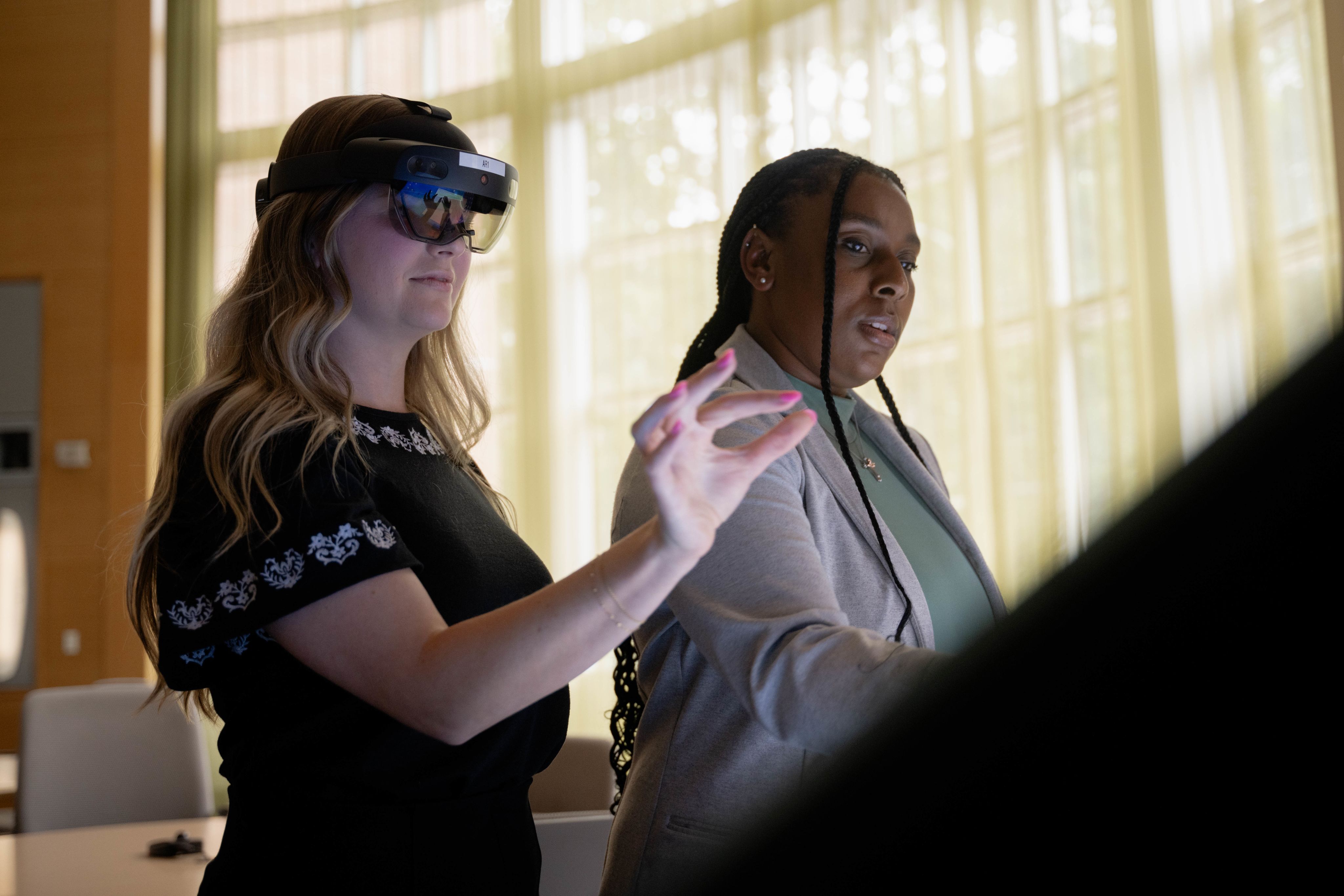
Creating an AI network
UF isn’t building an AI university by itself. This initiative began with a $70 million partnership between UF and NVIDIA, a global leader in AI and accelerated computing cofounded by UF alumnus Chris Malachowsky. NVIDIA donated a supercomputer, known as HiPerGator, that’s pushing the boundaries of teaching and research at UF, and maintains the NVIDIA AI Technology Center on campus to support these efforts.
Collaboration doesn’t stop there. UF has made HiPerGator available to Florida’s 11 other public universities and to industry partners. UF faculty are working with other two-year and four-year institutions across Florida to develop AI curricula and certificate programs. UF’s engineering and education colleges have developed a high school curriculum to equip youth with AI workforce skills. The program will be in place in 12 school districts this fall.
“If you’re just training people in AI in computer science departments at one university, you’re never going to prepare enough people to ramp up the AI workforce,” Reed said. “We’re trying to get this message out to everyone who will listen: We are very willing to help and share. We want others to see the value in what we’re doing and join forces with us.”
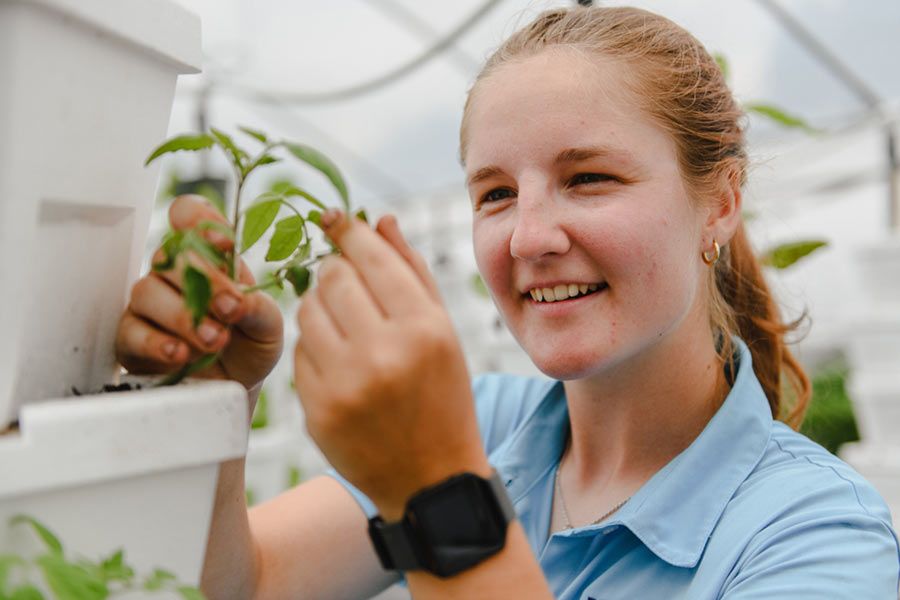
Ensuring student success
Regional and national employers know UF students have the critical thinking, communication and teamwork skills they demand. But UF’s AI university initiative is doing that one better: It is creating digitally literate graduates who are knowledgeable about AI and able to apply what they’ve learned.
UF’s Career Connections Center counsels students on AI courses, places them in AI-related internships and invites companies to recruit students with AI skills. UF isn’t seeking to connect only tech companies and IT graduates, said Ja’Net Glover, senior director for university career services. All employers — health care, finance, hospitality and more — are grappling with the rise of AI, and they all need early talent with data analytics skills from all academic disciplines.
To better meet the needs of students with AI skills and employers seeking AI talent, UF’s career services opened an AI career fair to students from all majors. The 2021 edition attracted 30 employers. For the one coming up in September, Glover said nearly 100 companies and 1,000 students will attend.
“The unique skill sets of our students have helped them stand out even more so they are prepared to compete in the 21st century workforce,” Glover said. “Intention and focus is truly helping students and employers understand that AI is not an IT thing or an engineering thing. This is an everybody thing.”
To learn more about UF’s artificial intelligence initiative, visit the university's official AI website.
This custom content is sponsored by The University of Florida and developed by Inside Higher Ed's sponsored content team. The editorial staff of Inside Higher Ed had no role in its creation.


